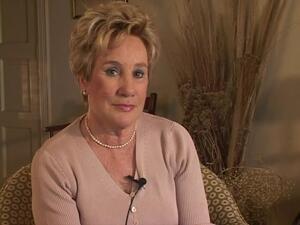Miriam Waltzer
As the first woman elected to the New Orleans Criminal District Court, Miriam Waltzer fought for the civil rights of minorities, children, and women. Waltzer was 22 when she married civil rights lawyer Bruce Waltzer and immigrated to the United States. Her experiences in Germany shaped Miriam's perspective on racism in the American South and drew her to a career in law. It was a difficult time to enter the profession: Waltzer's law school class had only five women, and New Orleans Parish had only male jurors until 1974. First elected to the criminal district court in 1982, she moved to the court of appeals in 1992. From the bench, Waltzer created innovative programs to educate juvenile offenders instead of sending them to prison. She wrote opinions and dissents that provided for the welfare of youth victims, forced male judges to honor federal child support requirements, and conducted a statewide survey on the treatment of women in the courts, revealing widespread discrimination against female lawyers and expert witnesses. She retired in 2002 and relocated to Dallas during Hurricane Katrina in 2005. As of 2015, Waltzer serves as a volunteer educator, working with children.
Miriam describes her childhood in Europe amidst the chaos of World War II, meeting and marrying her American husband, and formally converting to Judaism. She traces her career path to becoming the first woman elected to the New Orleans Criminal District Court, where she created innovative programs to educate and rehabilitate juvenile offenders. Miriam also conducted a statewide survey on women in the judicial system, revealing widespread discrimination against female lawyers and expert witnesses. During Hurricane Katrina, Judge Waltzer's lakefront home was destroyed. She resettled and remains in Dallas, where she engages in volunteering activities, including teaching nutrition to schoolchildren. She says the area she lived in reminds her too much of Frankfort after WWII. Finally, Miriam describes the generosity of the Dallas Jewish community and the difficulty of taking Tzadaka as a person who had always been the giver.



